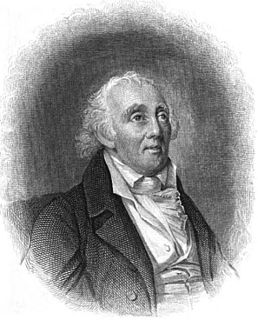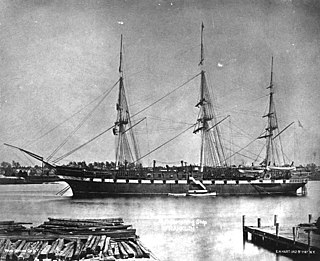
Georg Wilhelm Steller was a German botanist, zoologist, physician and explorer, who worked in Russia and is considered a pioneer of Alaskan natural history.

Legalism or Fajia is one of Sima Tan's six classical schools of thought in Chinese philosophy. Literally meaning "house of administrative methods" or "standards/law" (fa), the Fa "school" represents several branches of what have been termed realist statesmen, or "men of methods", who played foundational roles in the construction of the bureaucratic Chinese empire, with their teachings coming to temporary overt power as an ideology with the ascension of the Qin Dynasty. In the Western world, the Fajia has often been compared to Machiavellianism, and considered akin to an ancient Chinese philosophy of Realpolitik, emphasizing a realist project of consolidating the wealth and power of the state and its autocrat, with the goal of achieving order, security and stability. With their close connections to the other schools, some would go on to be a major influence on Taoism and Confucianism, and the current remains highly influential in administration, policy and legal practice in China today.

William Johnson Jr. was an American attorney, state legislator, and judge from South Carolina. He served as an Associate Justice of the Supreme Court of the United States from 1804 to 1834 after previously serving in the South Carolina House of Representatives. Johnson was appointed to the Supreme Court by President Thomas Jefferson. He was the first Jeffersonian Republican member of the Supreme Court and the second Justice from the state of South Carolina. During his tenure, he restored the act of delivering seriatim opinions on the court. He has been nicknamed the "first dissenter" for the large number of dissenting opinions he delivered.

François Huber, also known as Francis in English publications or Franz in German publications was a Swiss entomologist who specialized in honey bees. His pioneering work was recognized all across Europe and based on thorough observation with the help of several assistants due to his blindness.
Shen Buhai was a Chinese essayist, philosopher, and politician. He served as Chancellor of the Han state under Marquis Zhao of Han for fifteen years, from 354 BC to 337 BC. A contemporary of syncretist Shi Jiao and Legalist Shang Yang, he was born in the State of Zheng, and was likely a minor official there. After Han conquered Zheng in 375 BC, he rose up in the ranks of the Han officialdom, dividing up its territories and successfully reforming it. Though not dealing in penal law himself, his administrative innovations would be incorporated into "Chinese Legalist" statecraft by Han Fei, his most famous successor, and Shen Buhai's book most resembles the Han Feizi. He died of natural causes while in office.
Shen Dao was a Chinese philosopher and writer. He was a "Chinese Legalist" theoretician most remembered for his influence on Han Fei with regards to the concept of shi 勢, though most of his book concerns the concept of fa 法 more commonly shared among "Legalists". Compared with western schools, Shen Dao considered laws that are not good "still preferable to having no laws at all."

Xun Kuang, also widely known as Xunzi, was a Chinese Confucian philosopher and writer who lived during the Warring States period and contributed to the Hundred Schools of Thought. A book known as the Xunzi is traditionally attributed to him. His works survive in an excellent condition, and were a major influence in forming the official state doctrines of the Han dynasty, but his influence waned during the Tang dynasty relative to that of Mencius.

The Han Feizi is an ancient Chinese text attributed to foundational political philosopher, "Master" Han Fei. It comprises a selection of essays in the "Legalist" tradition on theories of state power, synthesizing the methodologies of his predecessors. Its 55 chapters, most of which date to the Warring States period mid-3rd century BC, are the only such text to survive intact. Easily one of the most important philosophical classics in ancient China, it touches on administration, diplomacy, war and economics, and is also valuable for its abundance of anecdotes about pre-Qin China.

William Proctor Gould Harding was an American banker. He was the 2nd Chairman of the Federal Reserve, and also served as the managing director of the War Finance Corporation.

The Pontifical University of Saint Thomas Aquinas (PUST), also known as the Angelicum in honor of its patron the Doctor Angelicus Thomas Aquinas, is located in the historic center of Rome, Italy. It is directly dependent on the Pope for its status as a pontifical university as outlined in the apostolic constitution Veritatis gaudium, which also clarifies the parameters of Church authority and academic freedom. The Angelicum is administered by the Catholic Order of Preachers, also known as the Dominican Order, and is the Order's central locus of traditional Dominican Thomist theology and philosophy.

The European Squadron, also known as the European Station, was a part of the United States Navy in the late 19th century and the early 1900s. The squadron was originally named the Mediterranean Squadron and renamed following the American Civil War. In 1905, the squadron was absorbed into the North Atlantic Fleet.

Tomás Garrido Canabal was a Mexican politician, revolutionary and atheist activist. Garrido Canabal served as dictator and governor of the state of Tabasco from 1920 to 1924 and again from 1931 to 1934, and was particularly noted for his anti-Catholicism. During his term he fiercely persecuted the Church in his state, killing many priests and laymen and driving the remainder underground.
The House of Laʻanui is a family of heirs to the throne of the Kingdom of Hawaiʻi collateral to the House of Kamehameha. Both houses are branches of the House of Keōua Nui.
Johann Baptiste Horvath was a Hungarian Jesuit Professor of Physics and Philosophy at the Catholic university for teaching theology and philosophy in Nagyszombat, Kingdom of Hungary. He is most noted for his authorship of various textbooks.
Spring Pond, United States, abuts the three cities of Lynn, Peabody and Salem. In the center of these townships "is a beautiful pond". It is a secluded lake known by residents of the three cities and visitors who come to enjoy the camps, trails and natural environment of the woods. "It is in fact one of the most picturesque and romantic lakelets in Massachusetts". Stretching from Spring Pond to Marlborough Road in Salem, the pond and woods form a microcosm of beauty. On the edge of Spring Pond was once the Fay Farm, an English manor estate in New England. The mansion of Fay Farm was a well-known hotel in 1810, when the springs of these areas were believed to possess medicinal qualities. People visited the springs near Spring Pond to restore health, and worship the goddess Hygeia and drink from the rusty iron-rich water trickling from the foot of a bank. Later, some traveled there solely for fun and frolic. The hotel was then converted into a private residence. The waters of Spring Pond are conveyed by springs from an aquifer lying below Spring Pond through Peabody, Lynn and Salem. Spring Pond is listed as one of the "Massachusetts Great Ponds".

Richard Russell Waldron was a purser "and special agent" in the Wilkes Expedition, together with younger brother Thomas Westbrook Waldron (consul). Several landmarks were named after him or his brother. After the expedition was completed Waldron enjoyed some popularity and influence in Washington, D.C.
Deng Xi was a Chinese philosopher and rhetorician who was associated with the Chinese philosophical tradition School of Names. Once a senior official of the Zheng state, and a contemporary of Confucius, he was actually China's earliest renowned lawyer, teaching the people word play in lawsuits. The Zuo Zhuan and Annals of Lü Buwei critically credit Deng with the authorship of a penal code opposing and twisting that of the more Confucian Zichan. Arguing over forms and names, Deng is cited by Liu Xiang as the originator of the "Legalists" and Logicians Xing-Ming principle judging names and realities (ming-shih), likely making him an important contributor to both Chinese philosophy and the foundations of Chinese statecraft.
Herbert Wallace Tullgren was an American architect active throughout 1910s-1930s. He was centered in Milwaukee, Wisconsin, but his work can be seen in different locations throughout Wisconsin such as Whitefish Bay, Waukesha, Shorewood, and Fond du Lac. His designs made use of Art Deco and Art Moderne, which was popular during the time.

Li Shanchang was the founding chancellor of the Ming dynasty. Deemed the recognized leader of the West Huai (Huaixi) faction, and given first rank among the six dukes in 1370, it is said that Li was the Emperor Hongwu's closest comrade during the war, and greatest contributor to his ultimate victory and thus establishment of the Ming Dynasty. Deeply trusted by the Emperor, Hongwu consulted Li on institutional matters, but became "bored with Li's arrogance" in old age.
Anarchism is book-length study of anarchism written by Paul Eltzbacher. It was originally published in 1900 and quickly translated into five languages, including English in 1908 by Steven T. Byington.












